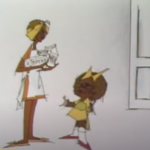






TEXAS BECOMES THIRD STATE TO ENSHRINE “REASONABLE CHILDHOOD INDEPENDENCE” INTO LAW
One tenth of all Americans now protected by legislation Let Grow helped get passed.
Kids don’t have to stay at home on the range in Texas. Instead, parents can let them run outside and play. A law passed over the weekend states that parents can let their kids engage in normal childhood activities without being accused of neglect.
This makes Texas the third state to affirm that children have the right to some unsupervised time, and parents have the right to give it to them without getting investigated. Utah passed the first so-called “Free-Range Kids” law in 2018. Oklahoma passed a similar law a few weeks ago, and the Texas bill became law on May 15.
Hallelujah!
You can’t raise can-do kids if they can’t do anything on their own
Let Grow has been working in these states for months — and sometimes years — educating lawmakers and others about the need for childhood independence. Our position is simple:
Kids aren’t bonsai trees. They miss out on developmental milestones when they don’t get a chance to play and problem-solve on their own. As kids’ freedom has evaporated, so has a lot of their mental health. But when parents worry a 911 call could open a neglect case on them, they, understandably, second-guess their reasonable parenting decisions.
Texas parents don’t have to do that anymore. In September, when the law goes into effect, 38 million people – more than one tenth of all Americans – will be protected by laws Let Grow helped to get passed.
A rare bill, loved by the left and the right
HB 567 enjoyed bipartisan support, sailing through the Texas Senate unopposed, and winning the House with a vote of 143 to 5.
“You had the most right-wing members of the legislature signed on with most left-wing members,” said Andrew Brown, distinguished senior fellow for child and family policy at the Texas Public Policy Foundation. The bill was so popular, he said, “because it’s a commonsense reform.”
The bill certainly would have helped someone like Austin mom Kari Anne Roy, whose case made headlines in 2014. Roy’s 6-year-old was playing within view of the house for about ten minutes when a woman marched him home and called the cops. Police officers paid Roy a visit, and a week later Child Protective Services interviewed each of her children separately. They asked the boy, 12, if he had ever done drugs, and the girl, 8, if she had seen movies with people’s private parts – something she’d never even heard of. “Thank you, CPS,” Roy said.
“Neglect” can’t just mean, “I wouldn’t let MY kids do that.”
The statute now enshrining childhood independence is part of a bigger children’s services bill ensuring Texans that the state will not intervene and remove a child unless the danger is so great and so likely that it outweighs the trauma of entering the foster care system.
“Removing a child from his or her family causes immense harm to the child and should only be done when absolutely necessary,” said Rep. James Frank , a Republican who was one of the bill’s co-authors. This new law — “the product of years of work from stakeholders of all types and legislators of both parties,” he said — gives the authorities those marching orders.
It does so because it “changes our definition of neglect,” Representative Gene Wu, a Democrat, told the Texas State Assembly. From now on, kids will be removed only when “they’re actually in danger, and not just the possibility of danger.”
This way the law not only protects parents who want to let their kids play outside, says Diane Redleaf, Let Grow’s legal consultant. “It also enables parents struggling to make ends meet to make child care arrangements that make life easier rather than harder.” In other words, it prevents poverty from being mistaken for neglect.
Being poor doesn’t make you a poor parent — something the new law recognizes.
For instance, in Houston in 2015, mom Laura Browder was arrested for having her kids wait 30 feet away from her in a food court when she had a job interview there and didn’t have time to line up child care. The arrest came after she had accepted the new job.
In Texas, notes Brown, “If you are a child living in one of the 25 poorest counties in Texas you are statistically more likely to enter foster care for an allegation of pure neglect – not abuse – than if you are one of the 25 richest.”
Bottom line: This law helps anyone giving their kids some reasonable independence – whether by choice or by necessity. No wonder it has such overwhelming support.
Here at Let Grow we are riding a gravy train with biscuit wheels. (Okay, so we stole that from this fantastic list of Texas expressions.) Suffice to say, we are very high on Texas and its lawmakers, and very happy for its families.



Add your comment now using your favorite social account or login to your LetGrow account.